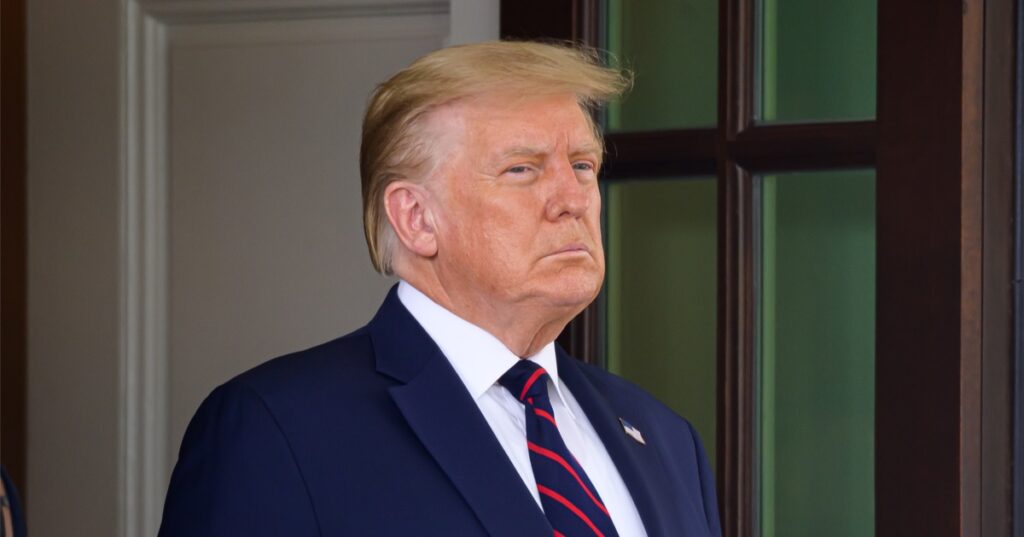President Donald Trump abruptly ended trade talks with Canada after an Ontario television ad used excerpts from Ronald Reagan’s 1987 radio address to suggest Reagan opposed tariffs; the ad’s accuracy is now a political flashpoint, with outlets and commentators sharply divided over whether the ad leaves a misleading impression or simply reuses Reagan’s own words. Media fact-checks and conservative critiques both point to the same source material, while the Reagan Presidential Foundation has called the ad a misrepresentation and is weighing legal options. The showdown highlights how historical clips can be repurposed in modern trade fights and why messaging matters when negotiations are on the line.
Trump’s decision to stop trade talks followed the airing of a provincial ad that leaned on Reagan’s April 25, 1987 “Radio Address to the Nation on Free and Fair Trade.” Left-leaning outlets have labeled the ad’s claim “fake,” but other analysts point to Reagan’s own remarks as the basis for the ad’s audio. The core fact is simple: the ad used audio from Reagan’s public address and edited it to make a specific point about tariffs.
Video of Reagan’s full remarks exists and shows him discussing the trade risks that justified specific tariff actions, including penalties against Japanese semiconductors. Fact-checkers have examined the clip and the ad side by side to see what was included and what was left out. That comparison is central to the disagreement over whether the ad misleads viewers about Reagan’s broader approach to tariffs.
A prominent paper’s fact-check found the advertisement “faithfully reproduced” the former president’s words even though it omitted the portion in which he announced targeted tariffs. Conservatives and many Republicans point to that exact phrasing to argue the ad did not invent language, it edited context. Even so, the omission of the tariff announcement is precisely why critics say the ad gives an incomplete picture.
Breitbart contributor John Carney went further in explaining the policy difference between Reagan and Trump. “Does Trump go further than Reagan did?” Carney wrote. “Yes. But that’s because he faces trade deficits and unfair-trade practices that dwarf anything imagined in Reagan’s time.”
“The imbalances and barriers that looked anomalous and transitory in Reagan’s era—hiccups on the way to global free trade—have hardened into a beggar-thy-American-neighbor system,” the writer maintained. Carney also stressed that “[w]here Reagan used tariffs to discipline a few offenders, Trump uses them as a universal framework to rebalance a world economy that runs permanently on U.S. deficits.” Those lines capture a conservative case that the scale and permanence of today’s trade problems justify a different, tougher posture.
Reagan himself did not shy from tariffs when he judged them necessary. In one high-profile move he raised the tariff on imported heavy motorcycles from 4.4% to 49.4%, a roughly tenfold increase that was explicitly aimed at protecting a domestic industry. At various times he also imposed or raised tariffs on steel, automobiles, textiles, and agricultural products, measures that show his willingness to deploy trade tools selectively rather than renounce tariffs categorically.
For its part, the Ronald Reagan Presidential Foundation and Institute put out a social media post condemning the Ontario ad and asserting that the organization’s permission had not been sought to use the material. The foundation signaled concern about how the former president’s words were edited and repurposed for a contemporary political message.
“The ad misrepresents the Presidential Radio Address, and the Government of Ontario did not seek nor receive permission to use and edit the remarks,” the post read. “The Ronald Reagan Presidential Foundation and Institute is reviewing its legal options in this matter. We encourage you to watch President Reagan’s unedited video on our YouTube channel,” it further declared.
The episode underscores how history and soundbites can be weaponized in trade disputes, and why negotiators watch public messaging closely. From a Republican perspective, the real issue is whether policy is being debated honestly: are critics pointing to selective editing or to the larger record of a president who used tariffs when he thought they were needed? That question will keep shaping the debate as trade negotiations proceed or stall.



